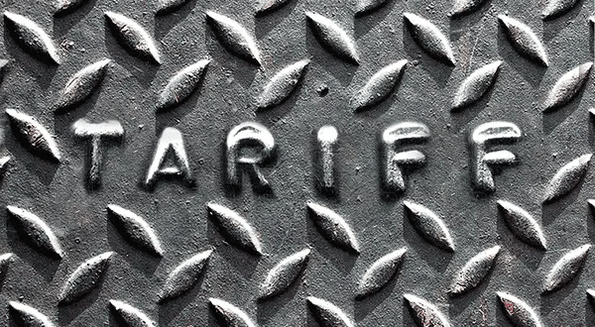Last week, in an effort to boost American manufacturing and beef up national security, President Trump signed an order to impose tariffs on steel and aluminum imports — which, to no surprise, really grinds foreign manufacturers’ gears.

Haven’t heard the word “tariff” since high school government class? Here’s a breakdown of what they are, how they work, and how this one could affect the global economy.
Tariff 101
A tariff is a government tax on imports that makes foreign goods more expensive and, in turn, makes the domestic product more attractive and gives the country’s manufacturers a leg up.
This particular tariff includes a 25% tax on steel imports and a 10% tax on aluminum imports from all countries except Canada, Mexico, and Australia.
In theory, this will help America’s struggling steel and aluminum industries get back on their feet, and even the playing field against powerhouse foreign steel manufacturers like China that play a role in driving down global prices.
“Sounds gravy… what’s the catch?”
Well, one concern is that US manufacturers won’t be able to keep up with the spike in demand: The US produces just 5% of the world’s steel, down from 12% in 2000.
Another is that the increase in steel and aluminum costs could penalize American companies that rely on them to make crucial things like beer cans and cars.
Then, there’s the rest of the world: Steel-producing countries affected by the tariff are concerned that this will handicap sales and threaten manufacturing jobs — and, if these countries decide to pass their own tariffs in retaliation, it could trigger a global “trade war” of revenge tariffs.
So, now what?
The tariffs don’t take effect until March 23, and in the meantime, countries impacted by the tariff are making their cases to be exempted from the rule.
Meanwhile, the EU is filing a complaint with the World Trade Organization, arguing that the obscure, national security-related trade law Trump used to justify the tariff violates WTO rules. They’ve also threatened to tax major American exports like Harley-Davidson motorcycles, and bourbon.
Grab your popcorn, people, this is gonna be interesting…

